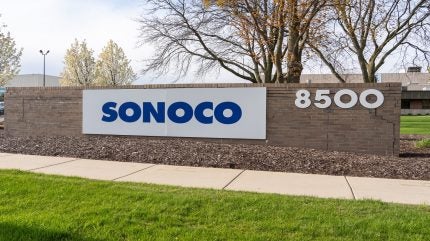
Packaging company Sonoco has released its 2024 corporate sustainability report, showcasing its transition towards more sustainable practices after acquiring Eviosys, a metal packaging company in Europe.
This merger is claimed to enhance Sonoco’s sustainability efforts, broadening its global presence and circular packaging capabilities with an additional 6,300 staff and 45 facilities across Europe, the Middle East, and Africa.
Sonoco now establishes itself as a worldwide frontrunner in both metal and fibre packaging, serving popular consumer and industrial brands while pursuing measurable sustainable solutions under its vision of ‘Better Packaging, Better Life’.
The company has made considerable investments in renewable energy and energy efficiency, targeting a 25% reduction in scope 1 and 2 greenhouse gas emissions by 2030 based on a 2020 baseline.
Initiatives include solar projects in Hartsville, South Carolina, Texas, and Italy, as well as turbo blowers in Stainland, UK, and Subang, Indonesia, along with a new biogas boiler in Subang.
In total, Sonoco executed 27 sustainability initiatives in 2024, including its inaugural virtual purchase power agreement with ENGIE North America for 140MW of wind energy capacity, anticipated to be operational by the end of this year.
These actions have led to a 9.6% decrease in energy consumption, exceeding the initial 8% target set for 2030.
Additionally, enhanced intermodal transport in North America has resulted in a reduction of around 2,400 tonnes of carbon dioxide emissions annually.
The integration of Eviosys, now functioning as Sonoco Metal Packaging EMEA, has further advanced the company’s sustainability ambitions.
In 2024, Eviosys reported a 26.3% decrease in scope 1 and 2 emissions from its 2020 baseline and attained an EcoVadis Platinum rating for the second consecutive year, receiving a perfect score for environmental performance.
Moreover, Eviosys has installed five energy-efficient oxidisers at key locations, which are projected to reduce natural gas consumption by 60% while eliminating solvent emissions.




